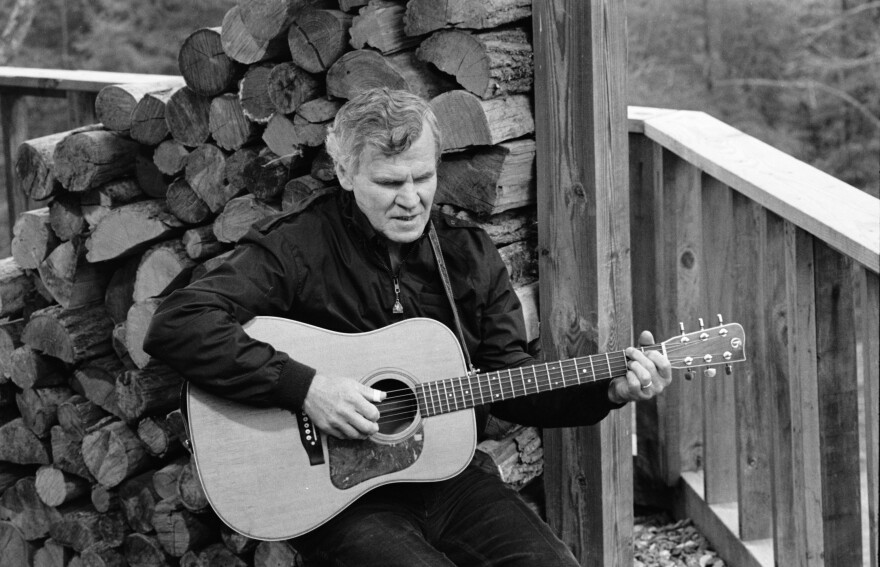When Doc Watson appeared at the Newport Folk Festival in 1963, he stirred the imagination of the folk revival like nobody else. At just over 40 years old, he wasn’t a grizzled old-timer but a contemporary of the audience. A charming blind man from the Blue Ridge in NC, he sang mountain ballads in a sonorous, accessible voice. He was a blazing guitarist and banjo player who made the young collegiate folkies envious and fascinated. That kind of authenticity, the authentic kind you might say, was exactly what they were all looking for during that heady time.
At Newport, “He had the audience in the palm of his hand,” says Dr. Ted Olson, professor of Appalachian Studies at East Tennessee State University and a producer on a new career-spanning anthology on Doc Watson. “His introductions of the pieces are both so humble and so matter of fact, that I think people realized this is a fellow that everybody feels that they could talk to - that they could hang out with. And there are no airs about him even though he's so gifted.”

The four-CD collection, Life’s Work: A Retrospective is new last Friday from Craft Recordings, the historic/catalog division of Concord Music Group. While Concord has over time acquired the labels where Doc Watson spent most of his career, including Vanguard, Rounder and Sugar Hill Records, the new box set licensed a number of tracks from outside to become the first to sample all chapters of the artist’s career, from his first recording in 1941 to near the end of his life. Over 101 tracks, we hear Doc playing electric guitar in his first working band from the 1950s, his critical sessions for the historic Will The Circle Be Unbroken album and a 2003 session with Alison Krauss and Ricky Skaggs. On the way, there’s plenty of classic material from Doc’s long-running duo with his son Merle and collaborations with admiring fellow guitar players such as Chet Atkins and Tony Rice.
Olson wrote the set’s extensive liner notes covering Doc’s life and influences, plus song-by-song context. Much of the history is told through the words of colleagues, friends and observers of Doc’s remarkable trajectory, including fellow North Carolinian Bryan Sutton, one of the leading flatpick guitarists today: “In my opinion, Doc should be in that pantheon of great American artists like George Gershwin and Bob Dylan—the people that we hold in highest esteem as far as their contribution to Americana, the American sound, and the American songbook. Even though Doc didn’t write a lot of original music, his influence—his general sound, his Doc sound, his Doc-ness—was so powerful, and he drew so many people to the music. He belongs on the Mount Rushmore of American musicians.”
I’ve argued the same, as I found more grounding in American music through Doc than just about any other artist I’ve encountered going back to my discovery of him in the early 1990s. While I was first drawn in by the clean, speedy guitar picking, I soon came to recognize the grace and emotion in Doc’s singing and his insightful fusion of genres in his expansive, exciting repertoire. “It all came from a deep sensibility. All music was special to him,” Olson says. “I mean, he was not partial to any one genre. And that is so refreshing. And I think it was a bit ahead of its time.”
The conversation presented here is part of Episode 189 of The String.
For options to purchase the physical set or link to the music on the web, click here.



